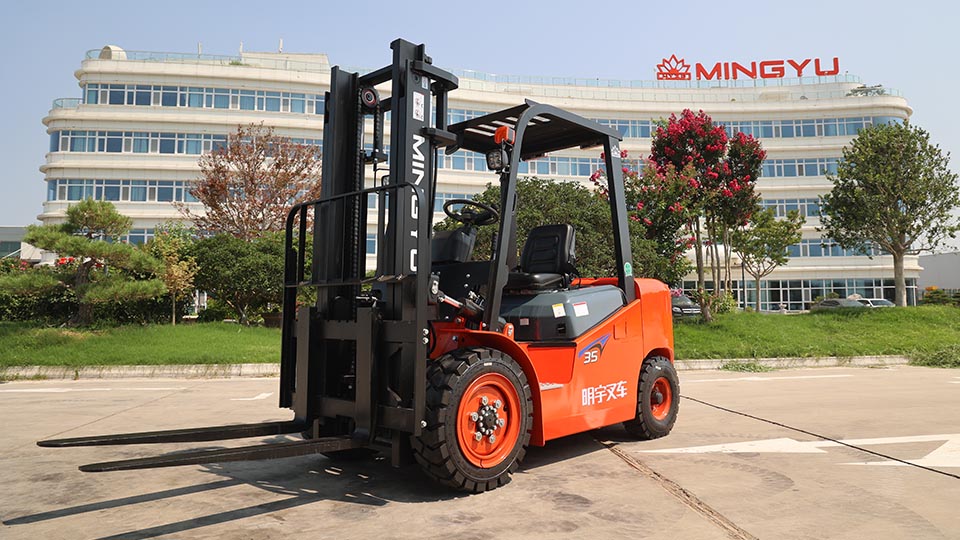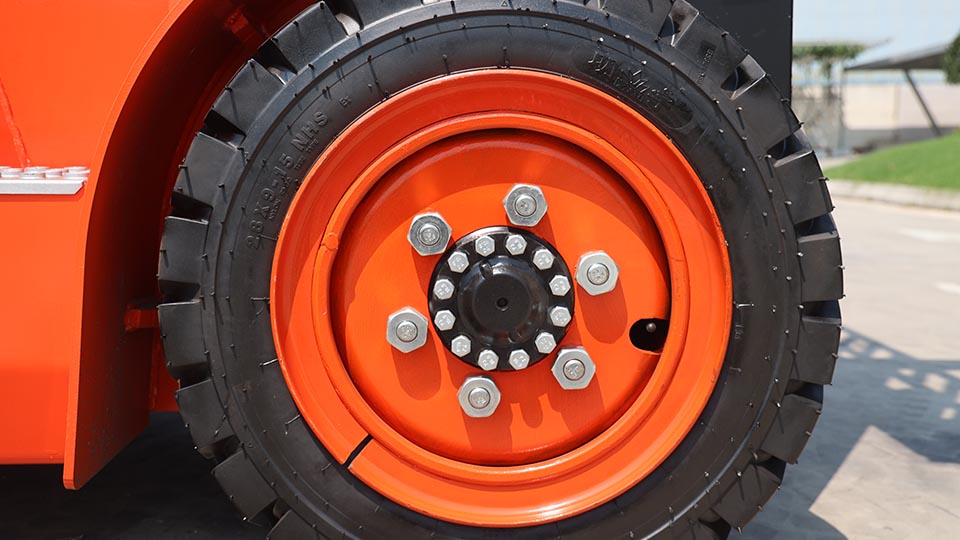
Forklift operation is a critical skill in countless industries, from warehousing and manufacturing to construction and logistics. The ability to safely and efficiently operate this powerful machinery is not only a valuable professional asset but also a legal requirement. The Occupational Safety and Health Administration (OSHA) mandates that all forklift operators must be trained and certified to ensure a safe working environment. As a result, one of the most common questions for aspiring operators or employers is: "How much does it cost for a forklift license?"
The answer, however, is not a single number. The cost of obtaining a forklift license, more accurately referred to as a certification, can vary significantly depending on a range of factors. This article will provide a comprehensive breakdown of the costs involved, the factors that influence them, and different training options to help you budget for and achieve your forklift certification.
The Core Components of Forklift Certification Cost
To understand the price, you first need to understand what you are paying for. A legitimate forklift certification, as per OSHA standards, is a two-part process:
Formal Instruction: This is the classroom or theoretical portion of the training. It covers essential topics like OSHA regulations, forklift mechanics, pre-operation inspections, load handling, and workplace safety protocols. This can be delivered through various formats, including online courses, in-person lectures, or video training

Practical Evaluation: This is the hands-on portion where a certified trainer observes you operating the forklift. You'll be evaluated on your ability to perform tasks like maneuvering in tight spaces, lifting and lowering loads, and navigating the specific hazards of a workplace environment. This part of the training is crucial and cannot be completed online.
The cost you pay will generally cover these two components, though some providers may charge for them separately.
Factors That Influence the Cost of Forklift Certification
The price tag on a forklift certification is not static. It's a dynamic figure that is shaped by several key variables. By understanding these factors, you can make a more informed decision and potentially save money.
1. Training Format: Online vs. In-Person
The most significant factor influencing cost is the training format.
Online Training: Online courses are typically the most affordable option, with prices ranging from as low as $50 to around $200. These courses offer flexibility, allowing you to learn at your own pace from anywhere with an internet connection. The cost usually covers the online modules, quizzes, and a printable certificate of completion. However, it is absolutely essential to remember that an online course alone is not an OSHA-compliant certification. You must still complete the hands-on practical evaluation with a certified trainer. This means you will incur a separate, additional cost for the in-person evaluation. Some companies offer a hybrid model where you can complete the theoretical training online and then schedule the practical portion at their facility.
In-Person Training: A complete in-person certification program, which includes both the classroom and practical components, generally costs more. Prices typically fall between $100 and $300, and can even go as high as $500 for more specialized or advanced courses. The higher price is due to the overhead costs of the training provider, including facility rental, equipment maintenance, and the instructor's time. This all-in-one approach is often the most convenient, as it fulfills all OSHA requirements in a single package.
2. Training Provider
The organization providing the training also plays a significant role in the price.
Employer-Provided Training: If you are already employed in a role that requires forklift operation, the cost of certification may be $0 to you. Many companies find it more efficient and cost-effective to train and certify their employees in-house. This ensures that the training is specific to the equipment and environment of their workplace.
Private Training Companies: These specialized firms focus on safety and equipment training. Their prices can vary widely based on their reputation, the quality of their instructors, and the resources they provide. They often offer a range of courses, from basic certification to advanced training for different types of forklifts.
Vocational Schools and Technical Colleges: Some educational institutions include forklift certification as part of a larger course or offer it as a standalone program. These programs can be more comprehensive but may also come with a higher price tag compared to a one-day private training course.
3. Type of Forklift and Certification
The kind of equipment you need to be certified on can also affect the price. A basic certification for a standard warehouse forklift (Class 1, 4, and 5) will generally be less expensive than training for more specialized or heavy-duty machinery. Training for rough-terrain forklifts, reach trucks, or other specialized equipment (such as Class 2 or 7) often requires additional instruction and practical experience, which can increase the cost.
4. Location
Where you get your certification can also impact the price. Training centers in major metropolitan areas with higher living costs and operational expenses often charge more than those in rural or less populated regions. The cost of a training program in a high-demand area may be different from a similar program in a smaller town.
5. Group Discounts and Employer-Sponsored Programs
If an employer is certifying multiple employees at once, they can often secure a discounted group rate from a training provider. This can significantly reduce the per-person cost. It's a common practice for businesses to invest in their workforce's safety by covering the cost of certification.
A Breakdown of Typical Forklift Certification Costs
To provide a clearer picture, here is a general breakdown of what you can expect to pay based on the training format.
Online Course Only: $50 - $100. This covers the theoretical portion and is not a complete certification. You will need to find a certified instructor for the practical evaluation.
In-Person Program (All-in-One): $150 - $300. This is the most common option for individuals and includes both the classroom and hands-on training.

Employer-Sponsored Training: $0 (to the employee). This is the ideal scenario if your job requires it, as the employer bears the full cost.
Specialized or Advanced Training: $300 - $500+. This is for certifications on specific types of forklifts (e.g., telescopic handlers, order pickers) or for advanced safety courses.
The Cost of Renewal
It's important to remember that forklift certification is not a one-time investment. OSHA requires operators to be re-certified every three years. The cost of a refresher course and re-evaluation is generally lower than the initial certification. Renewal costs typically range from $50 to $100, and many online providers offer free renewals for their customers, which is a great value-for-life benefit to look for.
The True Value of Forklift Certification
While the cost is an important consideration, it's essential to view it as an investment, not just an expense. The cost of an uncertified operator can be far greater than the price of a training course. OSHA fines for non-compliance can be substantial, and the human and financial costs of a workplace accident can be catastrophic.
A valid forklift certification demonstrates your commitment to safety and professionalism, making you a more valuable and employable candidate. It protects you, your coworkers, and your employer from the risks and liabilities associated with unsafe forklift operation.
Conclusion
The cost of a forklift license is not a fixed price, but rather a spectrum influenced by the training format, provider, location, and type of equipment. While online options offer a low entry point, they must be paired with an in-person practical evaluation to be valid. The all-inclusive in-person programs provide a convenient, one-stop solution. Ultimately, the price you pay is an investment in your safety, career, and the well-being of your workplace. By carefully considering the factors and choosing a reputable, OSHA-compliant provider, you can secure your certification efficiently and responsibly.
Name: selena
Mobile:+86-13176910558
Tel:+86-0535-2090977
Whatsapp:8613181602336
Email:vip@mingyuforklift.com
Add:Xiaqiu Town, Laizhou, Yantai City, Shandong Province, China